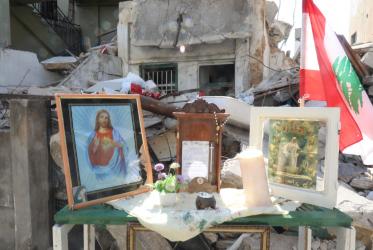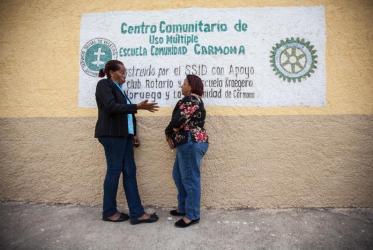Displaying 201 - 220 of 225
Killer Robots? Moral questions pervade UN conference
23 April 2015
Church leaders address statelessness in Dominican Republic
03 February 2015
Advent protests in New York City
16 December 2014
Indigenous faith leaders reflect on resilience and climate change
23 September 2014
New UN document opens door for churches to do more for indigenous rights
23 September 2014
Dialogue on HIV, sexual reproductive health and rights
12 March 2014
ÖRK verurteilt Einsatz von bewaffneten Drohnen
13 February 2014
Use of armed drones condemned by WCC
13 February 2014








